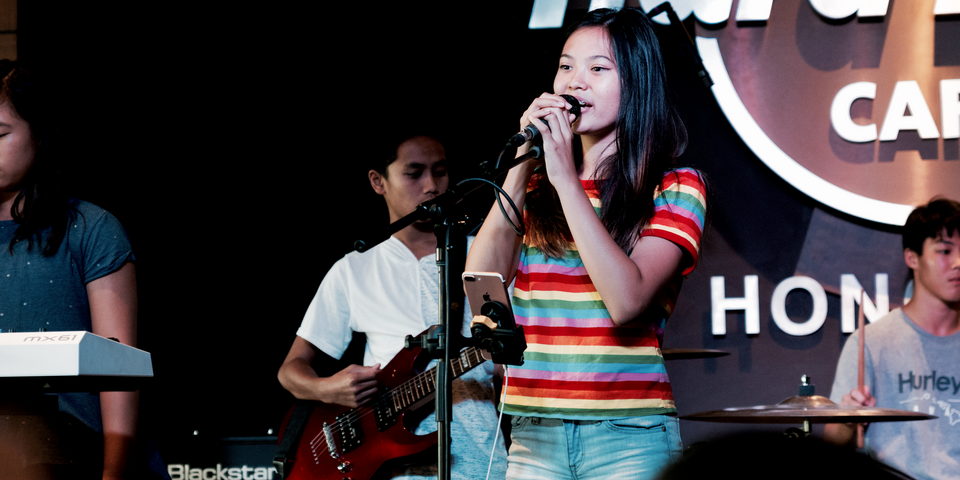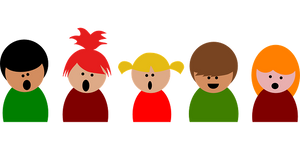At What Age Should Kids Begin Singing Lessons?

Many parents don’t realize just how much music lessons can do for their child. Learning music can improve their skills in math, memorization, and listening. It also helps young brains to develop motor skills and coordination, build self-esteem and teach kids about time management and teamwork.
Unlike the piano or guitar, when it comes to singing, your body IS your instrument, so utilizing proper technique to take care of your body is essential to cultivating a healthy, strong, long-lasting, and beautiful voice.
“When is the right age for my child to start singing lessons?”
The answer is that there is no correct age for a child to start singing lessons, but that there are different ways of teaching, different vocal techniques and exercises, different repertoire to learn, and different areas of the voice that should be trained in each stage of the development of a child’s vocal cords. Kids today have shows like The Voice to inspire them, and that’s amazing, but some of those contestants have no formal training and are actually straining their voices pretty badly. Professionally trained voice teachers know that working with voices that haven’t matured yet require tapping into a skill-set that accommodates an undeveloped body and mind.
Can My Child Begin Singing Classes Before Puberty?
 What we call “the voice” is really a group of different muscles and tissues working together to create sound. They may be fairly resilient in adults, but in children they can be easily damaged, sometimes temporarily and sometimes permanently. Before puberty, vocal cords are small and thin, with no difference between pre-pubescent males and females. Vocal exercises at this stage should mostly be in the higher range, and should focus on repertoire that sits high in the voice. Producing a healthy sound in the lower range must be carefully managed because a young child’s vocal cords are not yet developed in that area.
What we call “the voice” is really a group of different muscles and tissues working together to create sound. They may be fairly resilient in adults, but in children they can be easily damaged, sometimes temporarily and sometimes permanently. Before puberty, vocal cords are small and thin, with no difference between pre-pubescent males and females. Vocal exercises at this stage should mostly be in the higher range, and should focus on repertoire that sits high in the voice. Producing a healthy sound in the lower range must be carefully managed because a young child’s vocal cords are not yet developed in that area.
Puberty is the most delicate vocal developmental stage for the young singer. This is because both males and females undergo a very dramatic change in their bodies. During this time, the female vocal cords start to thicken, which results in breathiness, huskiness, and a little unsteadiness in the voice. The breathiness in the changing female voice is caused by an inability to properly close the vocal cords, and can be corrected by different techniques that focus on preventing air from escaping through the vocal cords. A male’s vocal cords also thicken during puberty, resulting in a significant pitch drop in his voice. To reach his full potential in range, he should begin to sing in the lower chest, middle mix, and the upper chest register. For both males and females during puberty, natural vibrato will find its way into the voice.
While the vocal cords reach full maturity by age 18, vocal development does not stop for the majority of a singer’s life. Therefore, it is important to continue furthering vocal instruction and technique for as long as the singer would like to pursue singing. The most important technique that a singer should focus on throughout all the ages and stages of vocal development is correct breathing and support of the voice with the body.
The answer…..
So, to answer the question simply — The most successful singers start their vocal instruction very early in life, laying the groundwork for correct vocal technique to achieve a healthy, strong, and beautiful mature voice. On the other hand, it’s never too late to start singing lessons because proper techniques can be learned at any age.
If you want to enroll your child in singing lessons, turn to the professionals at Hawaii MusicWorks in Pearl City. Since 1995, this music school has provided vocal instruction to students of all ages, helping them project, match pitch, and expand their range. Learn more about their lessons online, or call (808) 486-8600 to inquire about enrollment.
About the Business
Have a question? Ask the experts!
Send your question

